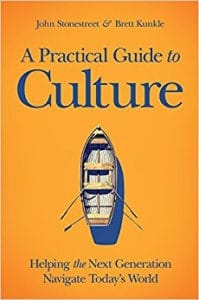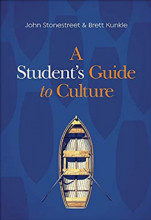
The War of Words
In this Adventures in Odyssey drama, a carelessly uttered word from Eugene creates havoc as it becomes the fashionable insult, resulting in a lesson about the power of words.
Home » Episodes » Focus on the Family Broadcast » Helping Your Child Develop a Resilient Faith in Uncertain Times
Excerpt:
John Stonestreet: So, all of these concepts, fundamentally, we’ve got to get to the heart of how words are used, how ideas are seeping into our minds. And teaching kids to be thoughtful about it.
Jim Daly: Yeah.
John: And they can do it in a loving way. It’s not being a jerk to say, you know – it’s kind of like, you know, the Princess Bride. “You keep using that word. I do not think it means what you think it means.” Right?
Jim: (Laughter) Right.
John: And what a great way to teach ideas to kids.
End of Excerpt
John Fuller: Well, that’s John Stonestreet and he’s our guest today on Focus on the Family as we talk about helping your child have a resilient faith. Your host is Focus president and author Jim Daly and I’m John Fuller.
Jim: John, the coronavirus pandemic is really taking it’s toll on all of us. In many ways it’s a magnifier. You know, whatever challenges you had before this virus struck – whatever your issues, your underlying problems – and we all have them. They seem a bit worse now. That – it’s a maginifier. But as believers in Christ, we have hope. Jesus reminds us of this hope in John 16:33 when He says, “In Me you may have peace. In the world you’ll have tribulation. But take heart, I have overcome the world.” How beautiful that is! And in the face of this virus, that gives me comfort and I hope it brings that kind of comfort to you as well. Uh, today we’re going to be talking with John Stonestreet. He’s going to answer some of these tough questions about what’s going on in the world and how we as Christians need to respond to a world that’s in desperate need of faith and answers.
John F.: Yeah. And John wrote a book with Brett Kunkle on this very topic. It’s called A Practical Guide to Culture: Helping the Next Generation Navigate Today’s World. We’ve got that here at focusonthefamily.com/broadcast. John and his wife Sarah have four children. Three girls and a young boy.
Jim: John, welcome back to Focus on the Family.
John S.: Well, it’s great to be with you. Anytime I can be with you, Jim, it’s a good time. Love Focus. Love everything that you guys do. And so, thank you.
Jim: John, as we look at this pandemic – that’s one of the things that concerns me, is how fear seems to be gripping people. I have a family member who’s calling my wife every couple of days and it’s all filled with fear. It’s, um, “The President’s not doing this right. People aren’t doing that right. Medical professionals don’t know what they’re doing. What are we going to do? We’ve got to protect ourselves.” It’s just a lot of anxiety. In that context, what’s the Christian approach to a pandemic?
John S.: Well, listen, I – it’s a real concern, isn’t it? I mean, we live in a culture now and we live in a time in history where a lot of the real threats to our day-to-day existence – that we’re just kind of part of life at another time in another place are kind of removed. And so, we have this illusion that the world is a place that we control. And it creeps in even if we kind of in our head know that God is in control. It’s still kind of creeps in. And when things like this happen, it can be really disorienting. I – you know, I’ve got the same situation where we have friends and neighbors who are really panicked. And then, you know, just a few days ago, Jim, with my own daughter, she was just having kind of a rough day. And my wife’s so much smarter than I am. And she said, “Hey, is something else going on?” And she just expressed a level of fear about what was happening.
Jim: Hmm.
John S.: And she’s probably among our kids, the one that, you know, pays the least bit of attention to kind of contemporary news or current events or things like that. And yet it still had gotten to her. Well, look, the thing that Scripture gives us that you really can’t get anywhere else – the thing that our faith gives us is this vertical reference point. Right? In other words, there is a God outside of this universe. We don’t control the world. He does. We can remember that this God loves us enough to become one of us in Christ Jesus. And – and eternally defeat death and sin on the cross and through the resurrection. And that is where – as Peter says where our hope lies. I – you know, Chuck Colson, you know who – my mentor and who the Colson Center, of course, is named after, used to put it this way. “Despair is a sin because Christ is risen from the dead.” And what a great opportunity for parents to help their kids see that the resurrection is not just something that happened in the past. It’s not just something that’s part of, you know, the Christian book. It actually is something that redefines all of human history in our lives right now. And there’s so many immediate concerns, it’s so easy to forget that the truest thing about right now – and whether it’s us dealing with the coronavirus fear or our brothers and sisters in, you know, Nigeria dealing with Boko Haram and persecution…
Jim: Hmm.
John S.: …Is still Jesus Christ is risen from the dead. And that’s where we begin.
Jim: Well, that’s for sure. The point of this, though, is all of this is kind of birthed out of that worldview that we possess. And when people are coming from a place of fear and anxiety, it does show a bit of the breakdown of that worldview. And, uh, I think the first question I really want to ask you is when we’re looking at the development of that worldview, what are some of the biggest hurdles in teaching our children that Christian worldview today? I mean, I’ve got – that’s the obvious softball question. But the culture is careening and oozing into us even as believers. So, how – A: what is the development and how do we do that? And then B: is there a way to prevent the bad stuff from leaking in?
John S.: Yeah. You know, I think the greatest obstacle is us. You know? It’s kind of one of – you know, one of those lines that we’ve seen the problem and it’s us. Um, because if we’re not intentional to help them see that their faith is not just a part of their life, but it’s the lens through which they see all of life. What’s the Christian perspective on this? What’s the Christian view on this? If we don’t have that sort of intentional level of conversation with our kids, then our kids are going to get their worldview they catch a cold or like they get sick. They just catch it from their environment. Right? In other words, it happens passively. They have a worldview. Don’t make any mistake about that. But it becomes a very passive sort of acquisition as opposed to intentionally connecting the faith to what’s happening, you know, in the world. And so, uh, that’s the biggest obstacle, is that parents too often are not intentional. They think that a kid’s worldview will happen either by osmosis or just because that’s the way it’s always been. And that really under underestimates, Jim, as you put it, the power of culture. And, Jim, you and I know, I mean, man, how dramatically culture has shifted. And we have felt that shift in areas of sexuality in, you know, the predominance of technology and so on. But our kids are natives. We’re immigrants to this, right?
Jim: Yes.
John S.: We’ve, you know, immigrated into this new cultural reality. Our kids have never known anything different. So, if we’re not intentional in pointing it out and saying, “Hey, here’s the connection of the faith to the coronavirus. Here’s the connection of the faith, you know, to socialism.” Which is a big topic, especially even for high schoolers, given, you know, the election. Which we’ve all forgotten about, but it’s still happening. Right? This stuff really matters. And so that level of intentionality, I think, is the most important thing we can begin with.
Jim: Well, it’s true. And I think it comes down to this really hard question. How do we do that?
John S.: Mm hmm.
Jim: How have you been doing it in your home with your kids?
John S.: Yeah.
Jim: I mean, that’s what it comes down to ’cause we have the cultural influence. And we chose it in our home – our two boys went to a predominantly Christian charter school. But it’s – there’s no, you know, safeguard in that. They’re mixing with kids that don’t have a Christian worldview. So how do you teach your kids how to be Christian in a world that is not Christian?
John S.: The first thing that we have done is tried to have been intentional that Christianity has more to do with our lives than just our behavior. In other words, building that foundation of beliefs. It’s very easy as Christian parents to think that our kids will just absorb the beliefs that we have. Uh, you know, again, by osmosis. And so, we focus in on behavior. You know, is your behavior honoring God? Are you having the right kind of moral choices? But…
Jim: So true.
John S.: …Yeah. But morality is at the top of the pyramid. Underneath that, when a kid is out on his own, when they have to make their own decisions – or as many of us have found out as parents, because, you know, sin doesn’t stop at the edge of the homeschool family, right? Sin is not out there. Sin is in here. And when kids have to make the decisions they have to make in the privacy of their own – you know, in private. When no one’s watching. Then those decisions aren’t based on compliance to a system. They’re rooted in our deeply held beliefs about life in the world. And so, beginning with talking about Christianity as if it’s not a way to behave, it’s actually a set of fundamental beliefs about how we can know who God is, Who actually exists and, you know – and is engaged with His creation including us. Just the other night, Jim, we had a wonderful conversation around our dinner table about this where one of my daughters had read through the Book of Esther. And we were wrestling with “What’s Esther about?” And – and her first response was, “Oh, it’s about how to be courageous.” And I said, “Well, look, Esther was courageous. But if you’re, uh, you know, someone of Jewish descent, Esther is not about Esther. Esther is about the history of your nation. Like this is actually something that happened in real life. And now Christians have put this into their own Bible. What does that make sense of and why does God’s name never pop up in Esther?” And it just started this wonderful conversation about how the story of the Bible that begins in Genesis and goes through Esther. How God is preserving Israel to preserve the Messiah to make all things new eventually in His death and resurrection. That this is actually real history. Like you’re reading about Esther like we would read about George Washington. And it was this paradigm shifting moment for at least one of my kids, she told me, because it was suddenly this stuff is real. It’s not just about how to behave or how I can be a better person. It’s actually the true story of the world. So that’s one of the things we try to do. The second thing is this strategy of asking really good questions. Sometimes we feel like we’ve got to have the answers. But if you learn from the two greatest educators in history – and I’ll say that’s Socrates and Jesus, who didn’t have a lot in common, but what they did have in common was they taught through questions. And we teach two fundamental questions that I think are particularly helpful in developing worldview. The first one is, “What do you mean by that?” And basically, what we’re trying to do there is force kids to think about how they use words. The battle for their hearts and minds is in the definitions that they embrace. Or C.S. Lewis would say “they assume.” When the words like truth and love and freedom and God and male and female and marriage are used, our culture might be using the same vocabulary as the Bible, but not the same dictionary. And fighting for those definitions are ways to get underneath what’s happening in our culture to that worldview level.
Jim: Yeah.
John S.: The other question we ask is, “How do you know that’s true?” Because we live in a world where – well, it’s called the “Age of Information” for a good reason, right? I mean, it’s the noisiest culture in human history. Which means things are thrown around. You talked about, Jim, your family member. One of the problems that creates fear in so many is just the sheer amount of information that never goes away. And where people and headlines make assertions that are not backed up by facts or arguments. And this becomes a really common thing. Right? How many teenagers do you know that start their kind of opinions by saying, “Well, I feel…”? Well, wait a minute. How do you know your feeling is true?
Jim: You talk about in your book the need not just to read the Bible, but to understand the context in which it’s speaking from. And, you know, I think one of the things that people of all stripes – you can be a teenager and have the same feeling that many so-called Christian leaders will twist Scripture to fit a doctrine that they want to create. And you got to be so careful understanding the Scripture in its context. So, speak to that element of reading the Word is important, but reading it with the context it’s being spoken is even more important.
John S.: Oh, yeah. Listen. The Scripture has been used – well abused – to justify all kinds of awful things…
Jim: Right.
John S.: …You know, throughout history. And it becomes really disillusioning and we actually see it. I will say, though, Jim, one of the things that should give us hope and should kind of chase in our skepticism on how the Bible can be misused is that throughout the history of the world, if you kind of lay out what do Christians believe, there is a strong core of truth that goes throughout history. So, it’s – it’s – if you know that it’s not too hard to really realize, you know, who strayed from the truth because there’s this core way that the Bible teaches. And a lot of its kind of obvious.
Jim: Hmm.
John S.: This is, “You’re a sinner and you need a Savior. And Jesus was God in the flesh. And the history of the Israel was to kind of set up Jesus this way.” Now, the problem comes because what we do is not read the Bible holistically. We read it in bits and pieces. Francis Schaeffer said that that’s the problem, is that “we don’t think in totals we think in bits and pieces.”
Jim: Hmm.
John S.: And we read the Bible in bits and pieces. I think Philip Yancey calls it the “moral McNugget” approach to the Bible.
Jim: (Laughter).
John S.: Right? So, you look for a story over here or verse over here completely without looking at any verses or stories around it. And then you try to pull out that “moral McNugget” from your life. And what we do with that, Jim, is we treat the Bible and Bible stories like Aesop’s Fables.
Jim: Hmm.
John S.: This was what my daughters, you know, were thinking about when it came to Esther. They were thinking, “Well, here’s a story. And when I read a story, I look for something – you know, some moral to apply to my life.” So, what it did is it – is it made that story really more a myth or a fable for them than actual part of the history of Israel which is central to the whole history of the whole world according to the Biblical story. So, two quick pieces of advice. One is never just a Bible verse. You can get at the heart of almost all of Scripture by just reading before and after. Secondly, I would say is read whole chunks of the Bible as much as possible.
Jim: Yeah, full book if you can do that.
John S.: Full book. Yeah. I mean, I learned this in seminary where, you know what, I can sit down and read the Gospel of Matthew in about 45 minutes. Now, I had to for an assignment…
Jim: (Laughter).
John S.: …Every night of the week for one week. But it was remarkable to see, “Look, even if I don’t want to read the whole thing, I could certainly read more than a verse here or a chapter there.” I can see Jesus’s movement in the early parts of His ministry. If you do that with the Gospel of John, you start to realize, well, wait a minute, John’s spending half of the book on three years and the second half of the book on one week. Right?
Jim: Hmm. Yeah.
John S.: I mean, this is really amazing. And this stuff becomes obvious. So, we tell people, ignore the verses, ignore the chapter divisions and read large chunks, but never just yank a Bible verse, you know, out of the middle of nowhere and twist it. See what it actually means.
Jim: Yeah.
John S.: Look at the verse before and the verse after. Look at verses before and verses after. And that – listen. If you just do that much, you’ll go a long way towards not reading it out of context.
Jim: Let me – let me turn a corner here. Because, again, I think for the listeners, it’s important to hear about this. When we talk about pluralism and its impact on the culture – and then I would couple that with even tolerance. And I have heard it described that the God of this generation, this era, is the god of tolerance.
John S.: Hmm.
Jim: And if you express tolerance, you are a welcomed citizen into this world. And tolerance certainly has it’s place. I mean, Jesus was incredibly tolerant of sinners. He engaged them. He talked with them. He was really cursed for engaging with them. Whether it was the tax collectors, the drunkards, et cetera. But He said quickly, you know, “I’ve come for the sick.” Those who are well – who needs a doctor? Right?
John S.: Mm hmm.
Jim: But I’m coming for these people that are struggling. And, uh – but speak to the pluralism and then couple that with the idea of tolerance and it’s ascendance in the culture today.
John S.: Yeah. Listen. This is the perfect place to introduce that question: What do you mean by that? Because pluralism can mean two things. And historically, pluralism has meant – has been more of a descriptive word. In other words, it’s describing the terrain, the culture in which we live. And that it’s a culture that’s not dominated by one particular philosophy, or one particular religion, one particular belief system, but it has many. It’s a pluralistic culture in a descriptive sense. Well, that’s observably true, right? So, to say I’m a pluralist – I can say I’m a pluralist in that sense. But what has happened in our culture is that word has moved into not just a descriptive explanation for what the world is, but a prescriptive one. Which means because there’s so many different belief systems. It’s intolerant or bigoted or hateful or – or wrong to say that anyone has the truth. So, pluralism has become actually a prescriptive mandate against the idea of having the truth. And if we don’t actually help kids see the difference between those two uses of the word – or because we live in a culture where there’s so many belief systems represented that there is such a thing as truth and that truth actually is knowable – that’s what is required to navigate this world that is so pluralistic. In fact, here’s the thing. Is our culture’s been pluralistic for a while. When you take pluralism and dump it into an information age then that means these random half-truths, unexplained things, get dumped at us through headlines and memes and Facebook posts and Twitter feeds and Instagram and, you know, Tik Tok and everything else. And so, it becomes even more pluralistic in that sense because things are so uncontextualized. Same thing is true, by the way, the word tolerance, Jim. Is what do you mean by tolerance? If tolerance means I think you’re wrong, but I respect your ability to have an opinion. I’m going to honor you by not, you know, taking away your rights or beating you up or, you know, harming you or anything like that. That’s the traditional sense of the word tolerance. I’m going to tolerate. But tolerance now again has been hijacked. It’s been redefined to mean you can’t think anybody actually has the truth and you can’t think anybody is wrong. So, all of these concepts, fundamentally, we’ve got to get to the heart of how words are used, how ideas are seeping into our minds. And teaching kids to be thoughtful about it.
Jim: Yeah.
John S.: And they can do it in a loving way. It’s not being a jerk to say, you know – it’s kind of like, you know, the Princess Bride. “You keep using that word. I do not think it means what you think it means.” Right?
Jim: (Laughter) Right.
John S.: And what a great way to teach ideas to kids.
Jim: Yeah, it’s so true. And I think one of the things that we’re saying is this demand for tolerance except for the Christian community. Let me give you a perfect example. And, for the listeners, talk about this when you have a moment. The New York Times story…
John S.: Wow.
Jim: …That basically blamed Christians for the coronavirus outbreak. To which I’m still perplexed – trying to understand what are they really saying. And what they were, I think, attempting to say is that because Christians are so disconnected from science therefore their lack of doing the right thing or holding this President accountable for whatever they perceived to be his inaction or the administration’s inaction – they’re guilty for spreading coronavirus. I thought that was a blatant intolerant thing to say…
John S.: (Laughter) Oh man.
Jim: …And very prejudiced. But you’re seeing that throughout the culture. Mostly around the definition of marriage, ironically.
John S.: Oh, yeah. Absolutely.
Jim: But that’s the crux of the issue. That because we won’t believe in a broader definition of marriage for humanity – we’re sticking to what the Word of God says that marriage is for a man and a woman. And if you say that, man, you are truly intolerant and basically don’t deserve oxygen to breathe.
John S.: This is – this is exactly the things that parents can bring up with their kids. Number one, look at the intolerance of tolerance. Let’s define the word. What it is and what it’s not. Are they really being tolerant? What a great way to get at a fundamental idea of how do we live and work and live together with people with whom we disagree. Secondly, why is it that the conflict seems to be between these two groups of people? That is a profound thing to talk about with your kids. This is different than get off my lawn. They hate us. Or we’re the persecuted minority. Or everyone hates Christians and so on and so on and so on. We need to get to the heart of what it is that is the root of the disagreement. Because it’s not just a kind of a personal grudge that’s happening here, although it’s kind of turned into that at times. But what is at root of this is a fundamental disagreement about what it means to be human. About beliefs. We’re back to where we started, Jim.
Jim: Yeah.
John S.: What is true? And so, this is a wonderful opportunity to talk about this. And then the third level of this that we can talk about is, well, what happens? What should you do when someone mistreats you in the name of tolerance?
Jim: OK. This is a really interesting one. And I want to share a story with you. The Focus listeners have heard me express this. I recall I had written a book called ReFocus which hits on these themes. And I was invited to a bookstore here in town and the owner of the bookstore’s fairly liberally minded and, uh, progressive, as the left calls themselves. I call it regressive, but…
(Laughter)
Jim: But he invited me down. And I – I wanted to be a good citizen, a good friend. And I said, “Yes.” And I went down. There’s probably 50 to 70 people there. I can’t remember. And I spoke about these things. And I remember a – happened to be a homosexual activist was in the crowd and he put his hand up. And I called on him during the Q&A time and he said, “You know, when will Christians get away from their antiquated sexual orientations and understand human sexuality in the 21st century?” Wow, what a statement.
John S.: (Laughter).
Jim: And I’m smiling. And I could tell it was irritating him. And he, you know, “Why you’re smiling?” And I said, “Well, here’s the bottom line. You’re asking me, a follower of Christ, to take out some kind of eraser and to erase certain things in the Bible that offend you or offend me. That’s not how works, my friend. The way it works is I’m a follower. I’m not the Editor. I’m certainly not the Author. And your issue is with the Author of the Scripture, God himself. And we never use the Scripture to bend to our proclivities. We have to bend to it. That’s called born again and being a faithful follower of Christ. And I feel for these people that want to change the very core of scripture to fit their desires, their lusts, their idolatry…”
John S.: Mm hmm.
Jim: “…And I’m telling you, friend, as a believer in Christ, you don’t want to go down that road because that’s the road to damnation. I’m sorry to tell you, but that’s it. And what we’ve got to do is bend our lives toward the Creator of Life.” And that’s what you’ve done so well, John, in your great book. Let me ask you at the end here, because this is really for the benefit of all. But what are some of those questions parents and young people can have to further their confidence, their position, their worldview, as we’ve talked about? What are some questions they can cover that really open up the spiritual dialog between them?
John S.: Yeah. Well, listen. It’s a great question. I think those clarifying questions that we mentioned earlier. Especially the definition of words when there’s so much noise. What do you mean by that? How do you know that’s true? You know, there’s also a great pair of questions. And they’re pair. They fit together because we live in a culture in which we try to remove the natural consequences from behaviors. Right? Whether it’s through abortion or whether it’s through, um, you know, how we do even criminal justice and everything in between. It’s these questions about consequence. What if you’re right in this belief? And what if you’re wrong in this belief?
Jim: Hmm.
John S.: What a great way to again show the connectedness between our faith and life. But let me give you the one that I think is most profound. The greatest commandment in the Bible is not to believe. It’s not to think. It’s not to defend. It’s the love.
Jim: That’s it.
John S.: I think times like this, um, you know, experiencing this lockdown and – and uncertainty, our loves are going to bubble to the surface much more obviously than perhaps in other situations.
Jim: Well, I so appreciate that. And it’s true. I think we’ve been experiencing actually in this dark cloud – we have seen the silver lining in our household. Loving on each other. Spending time together. Playing board games. Reading the Word together. Praying together. It feels like the way family should operate and it showed me how much busyness…
John S.: Hmm.
Jim: …Robs us of the prioritization of how to use our time wisely. John Stonestreet, thank you for being with us.
John S.: Thanks, Jim.
Jim: And let me turn to you, the listener. Focus on the Family is here for you. Our staff is answering phones and ready to help in whatever way we can. And we get it. This quarantine business is not easy. But you’re not alone. We have lots of resources available for you on our website. From everyday parenting issues and marriages issues. Things to equip you to do a better job in both of those areas and with your family in general. We even have information to keep you up to speed on the coronavirus from experts that we have recorded with recently. We also have John’s great book, A Practical Guide to Culture: Helping the Next Generation Navigate Today’s World. And, uh, the best thing about getting your copy through Focus on the Family is that those proceeds go right back into ministry. I mean, your helping to save marriages. Help parents do a better job raising their kids. And saving baby’s lives. I mean, how about that? So, we hope that you’ll get a copy of John’s book through Focus on the Family.
John F.: And we’ll encourage your gift of any amount to the ministry of Focus on the Family today. We’ll say thanks for joining the support team by sending your copy of A Practical Guide to Culture. Donate and get the book at focusonthefamily.com/broadcast or call 800, the letter A and the word FAMILY. Well, tomorrow we’ll have some tips about how you can be a great neighbor during this coronavirus crisis.
Teaser:
Pastor Jay Pathak: And what if the people of God learned how to take the teachings of Jesus seriously? Like we’re to love those who persecute us. We’re to pray for those that we find difficult or annoying or challenging. I mean, what if every believer could try that on their neighborhood? And I think we kind of have to because we can’t escape it. So, it’s an opportunity if we choose to see it as such to grow and really try on the teachings of Jesus in a new way.

John Stonestreet is President of The Chuck Colson Center for Christian Worldview which seeks to build and resource a movement of Christians committed to living and defending the Christian worldview. The Center was begun by Chuck Colson in 1991 as a radio broadcast called BreakPoint, of which John now serves as host. John is a highly regarded public speaker and cultural commentator, and the co-author of five books including A Practical Guide to Culture and Restoring All Things. He and his wife, Sarah, have four children and reside in Colorado Springs, Colo.

Receive John Stonestreet's book A Practical Guide to Culture for your donation of any amount!

The student edition of the popular A Practical Guide to Culture delivers a hopeful message to readers ages 15–25 who struggle to navigate contemporary challenges to their Christian faith and values, but will be encouraged to emerge as leaders.

This free streaming platform for families features some of Focus on the Family's most popular content, including "Adventures in Odyssey," "McGee and Me," "Last Chance Detectives," and more.

Visit our online store and purchase a CD of today's program for yourself or to share with a friend.

John Stonestreet, President of the The Chuck Colson Center for Christian Worldview, offers parents practical guidance for helping their children face cultural pressures with confidence and having a positive influence on society.

John Stonestreet, Executive Director of the Chuck Colson Center for Christian Worldview, examines the deterioration of morals in the culture and encourages Christians to better understand biblical truth and model it to a desperate world. (Part 1 of 2)

John Stonestreet, Executive Director of the Chuck Colson Center for Christian Worldview, examines the deterioration of morals in the culture and encourages Christians to better understand biblical truth and model it to a desperate world. (Part 2 of 2)

A recent nationwide survey completed by the Barna Research Group determined that only four percent of Americans had a "biblical" worldview. When George Barna, who has researched cultural trends and the Christian Church since 1984, looked at the "born-again" believers in America, the results were a dismal nine percent.

It is important that we have a good handle on what a worldview is so that we can grow in our own commitment to the truth, and to help those we love to grow in their commitment as well.

John Stonestreet, President of the Chuck Colson Center for Christian Worldview, encourages us to engage in the cultural discussion on issues like the value of human life and God’s design for sexuality and marriage. He admonishes Christians to persevere in sharing their faith and defending religious liberty.

John Stonestreet discusses the Bible as the unshakeable foundation of truth in a culture where truth is perceived as relative. With the approach of Easter, John also highlights the need to share the Gospel as he talks about the historicity of Jesus Christ's death and resurrection.

In the midst of a confusing cultural moment, it's easy to be weighed down with overwhelming doubts that any of our efforts are actually making a difference. While the tides shift just outside the doors of our churches, something else is going on just beneath the surface.

In this Adventures in Odyssey drama, a carelessly uttered word from Eugene creates havoc as it becomes the fashionable insult, resulting in a lesson about the power of words.

This discussion offers a preview of Volume #16 “Cultures in Conflict” from the That The World May Know video series, available below.

Debra Fileta will help couples better understand the four seasons of healthy relationships, what to expect during each one, and how to carefully navigate them for a stronger marriage. (Part 1 of 2)

Larnelle Harris shares stories about how God redeemed the dysfunctional past of his parents, the many African-American teachers who sacrificed their time and energy to give young men like himself a better future, and how his faithfulness to godly principles gave him greater opportunities and career success than anything else.

Amy Carroll shares how her perfectionism led to her being discontent in her marriage for over a decade, how she learned to find value in who Christ is, not in what she does, and practical ways everyone can accept the messiness of marriage and of life.

Psychologist Dr. Kelly Flanagan discusses the origins of shame, the search for self-worth in all the wrong places, and the importance of extending grace to ourselves. He also explains how parents can help their kids find their own sense of self-worth, belonging and purpose.